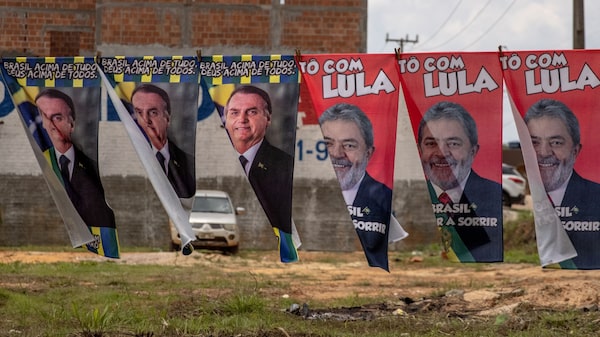Bloomberg — Petrobras posted strong first-quarter results thanks to growing oil production during this year’s rally, prompting a rebuke from President Jair Bolsonaro who wants it to contain fuel prices ahead of an October election.
Bolsonaro called on Petrobras to freeze gasoline and diesel prices on Thursday, adding that its profits are unacceptable during a crisis. Recently elected Chief Executive Officer Jose Mauro Coelho will be put to the test as the gap between Petrobras’s refinery gate prices and international levels widens.
Latin America’s biggest oil producer announced 48.5 billion reais ($9.7 billion) in additional dividends to be paid in 2022, that mainly correspond to results from the first quarter. It exceeds the 44.56 billion reais it reported in net income for the period.
“Look at the abusive profit,” Bolsonaro said in a weekly address on Facebook, adding that he can’t interfere in how Petrobras sets prices. “I ask Petrobras to be responsible, and not increase the price of diesel.”

Brazil’s oil giant readjusted prices in March, but is selling fuel below international rates again, raising concern among investors who saw it turn from the world’s most indebted oil producer to a cash cow in the past five years. In a statement, Petrobras said artificially low prices could hinder fuel imports and result in shortages in the domestic market. It also said that Brazilian society is the main beneficiary of its profits.
Petroleo Brasileiro SA (PETR4), as Rio de Janeiro-based producer is formally known, reported adjusted earnings before items, a measure of profitability, of 77.71 billion reais, beating the 74.4 billion-real average analyst estimate compiled by Bloomberg, according to an earnings report filed Thursday.
After years subsidizing gasoline to contain inflation, in 2016 Petrobras adopted a policy of tracking international prices while shielding consumers from short-term volatility. The move has caused plenty of drama.
Since then, three of the company’s CEOs lost their jobs amid fuel-price disputes. The list includes Coelho’s predecessor Joaquim Silva e Luna, ousted by President Jair Bolsonaro after raising fuel in response to the war in Ukraine, even though Petrobras delayed the adjustment by more than two months.
“Petrobras’s main short-term risk is if there will be a change in the pricing policy,” said Fernando Valle, an equity analyst at Bloomberg Intelligence who covers Petrobras. He highlighted that the company was slow to pass through higher fuel costs to consumers in the first quarter.
Coelho pledged to keep market-based fuel prices when he took the helm, but it is unclear what will happen to this policy after October elections. Both Bolsonaro and his main adversary, former president Luiz Inacio Lula da Silva, have come out against fuel price increases, and congress is reviewing bills aimed at limiting volatility.
In a statement Thursday, the new CEO promised to continue producing solid results.
“With our portfolio resilient to low oil prices, the prospects for production growth and the continuity of portfolio management, we are convinced that we will deliver more and more results for society,” he said.




